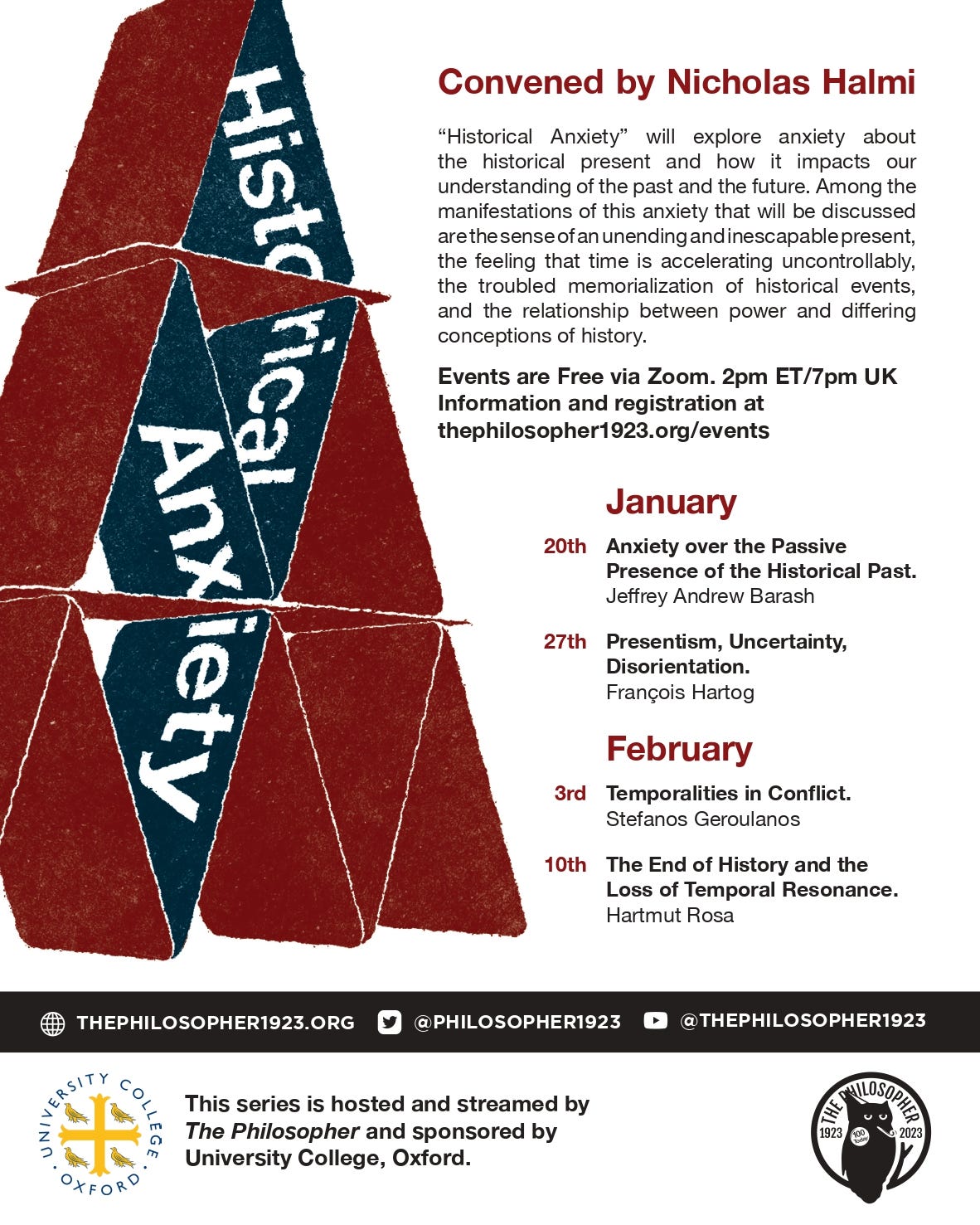Reading Byung-Chul Han; The Open Society as an Enemy; Historical Anxiety
A new essay, an event, and a forthcoming series
Dear all,
As someone currently living in a Buddhist retreat centre in no small part due to burnout, I resonate strongly with the work of Byung-Chul Han, the South Korean-born philosopher and cultural theorist (notably his books, The Burnout Society (2015) and The Philosophy of Zen Buddhism (2022)). So I am delighted that we have just published a marvelous overview of his work by Robert Wyllie and Steven Knepper. As for our events, Alexis Papazoglou is back tomorrow for his monthly installment of “The Philosopher and the News”. I hope you can join for what will no doubt be a really compelling and relevant discussion of Karl Popper’s idea of the Open Society and its contemporary enemies.
Your Sunday Read
“Five Ways to Read Byung-Chul Han”
An essay by Robert Wyllie and Steven Knepper
In the world of philosophy and social criticism, Byung-Chul Han is a one-man Korean wave. He has published a book each year, on average, for the past thirty years, and he has become an internationally known figure in the past decade. He is the rare philosopher who tries to write for a large popular audience. For Han, philosophy is not for professional philosophers but instead for everyone, so that we can better understand our exhausting times. This overview of Han’s work offers various ways to read him: as a cosmopolitan, as a contemplative, as a social critic, as a theorist of media technology, and as a philosopher of beauty. Hopefully at least one of these readings will resonate with you! You can read the essay here.
Monday Event: 11am PT/2pm ET/7pm UK/8pm CET
“The Open Society as an Enemy”
J. McKenzie Alexander in conversation with Alexis Papazoglou
This event is part of “The Philosopher and the News” series, hosted by Alexis Papazoglou.
Nearly 80 years ago, Karl Popper gave a spirited philosophical defence of the Open Society in his two-volume work, The Open Society and Its Enemies. In this event, J. McKenzie Alexander will argue that a new defence is urgently needed because, in the decades since the end of the Cold War, many of the values of the Open Society have come under threat once again. Populist agendas on both the left and right threaten to undermine fundamental principles that underpin liberal democracies, so that what were previously seen as virtues of the Open Society are now seen by many people as vices, dangers, or threats. Alexander will call for the concept of the Open Society to be rehabilitated and advanced. In doing this, there is an opportunity to re-think the kind of society we want to create, and to ensure it is achievable and sustainable. You can find out more and register here.
Historical Anxiety Series
Just in case you don’t feel quite anxious enough at the moment, you can now register for the first three events in our “Historical Anxiety” series, convened by Nicholas Halmi of Oxford University. On 20th January, Jeffrey Andrew Barash will be discussing “Anxiety over the Passive Presence of the Historical Past”; on 27th January, François Hartog will be discussing “Presentism, Uncertainty, Disorientation”; and on 3rd February, Stefanos Geroulanos will be discussing “Temporalities in Conflict”. The listing for the final event with Hartmut Rosa will be posted shortly. And here is the awesome poster for the series:
Event Recording
In case you missed Alexandra Plakias discussing the philosophy and moral psychology of awkwardness on Monday, here is the recording:
Ending
The Philosopher is unfunded and relies on your support to keep doing the work we do. Through becoming a supporter via Patreon, you can get all our print/digital issues sent to you, enjoy priority access and discounted rates for our groups/classes, join philosophical discussions with our editorial team, and more. The income we generate via Patreon helps us to keep our events series free and to pay our contributors. You can find out more and become a member here.
Wishing you all a lovely Sunday, wherever you are.
Anthony Morgan
Managing Editor




